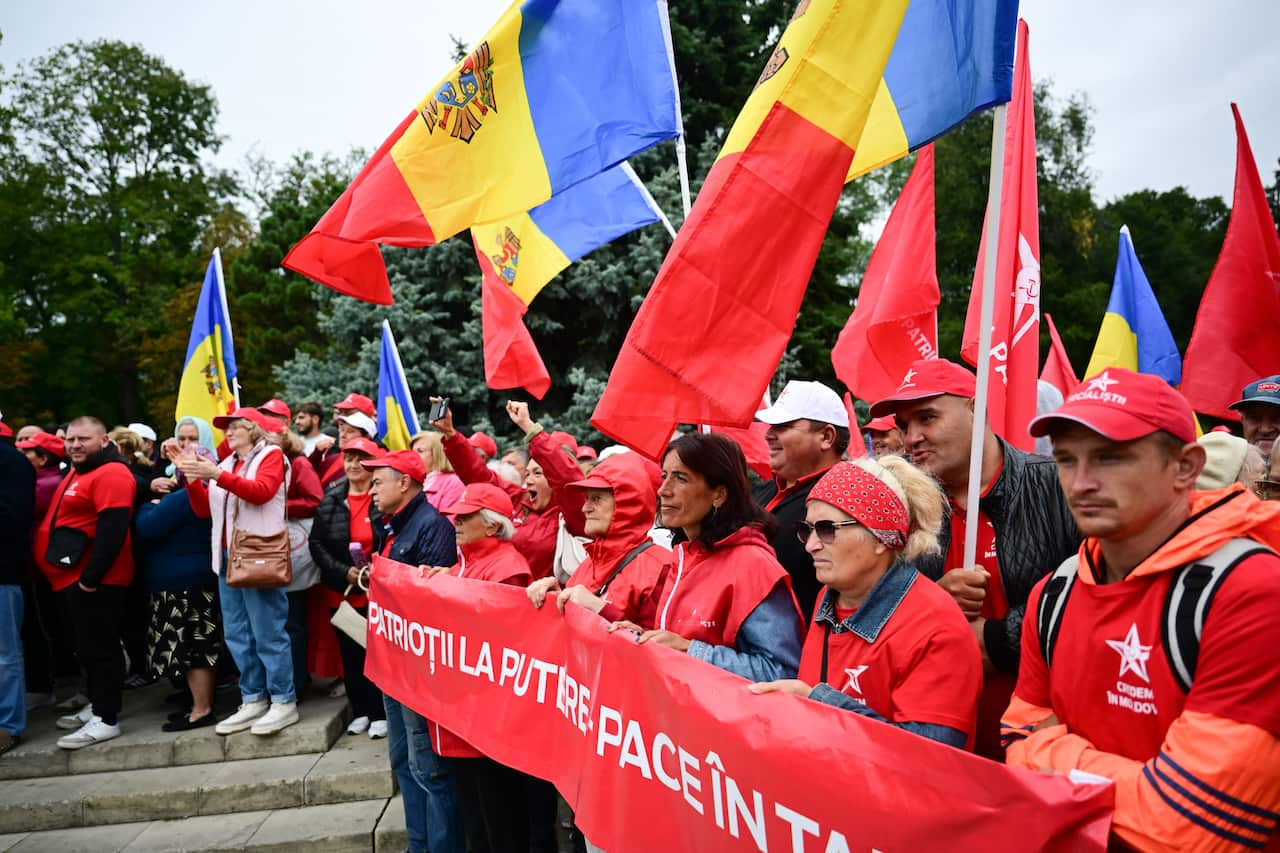Moldova's pro-European ruling party won a resounding victory over its Russian-leaning rival in a key parliamentary election, results showed, in a major boost for the country's bid to join the EU and break away from Moscow's orbit.
The surprisingly strong performance by President Maia Sandu's Party of Action and Solidarity (PAS) against the Patriotic Bloc was a relief for the government and its European partners, who accused Moscow of seeking to influence the vote.
With nearly all votes counted, PAS had won 50.2 per cent versus 24.2 per cent for the Patriotic Bloc, which had sought to steer Moldova closer to Russia.
"The people of Moldova ... chose democracy, reform, and a European future, in the face of pressure and interference from Russia," Antonio Costa, president of the European Council which represents the EU's 27 member states, said on X.
The leaders of France, Germany and Poland, in a joint statement, also congratulated Moldova for "the peaceful conduct of the election, despite unprecedented interference by Russia, including with vote-buying schemes and disinformation".
However, Moscow — which denies the accusations of meddling — accused authorities in Moldova of preventing hundreds of thousands of its citizens who live in Russia from voting by providing only two polling stations for the large diaspora.
Asked whether Moscow recognised the results, Kremlin spokesman Dmitry Peskov noted that some political forces in Moldova had spoken of violations.
"First, Moldovans themselves should probably sort this out. As far as we know, some political forces are declaring their disagreement. They're talking about possible election violations," he said.
An acrimonious buildup to key poll and protest call
The buildup to what PAS leaders have called the most consequential election in Moldova since independence was marred by accusations of foul play by both sides up to and on the day of polling.
Sandu's government warned Moldovans that Russia had sought to sway the vote through widespread disinformation and vote-buying.
Stanislav Secrieru, Sandu's national security adviser, said election infrastructure and government websites had come under cyber attack, and that fake bomb threats were called into polling stations in Moldova and abroad.
On Sunday, Patriotic Bloc co-leader Igor Dodon, a former Moldovan president, called for protests in front of parliament on Monday, claiming that Sandu was planning to annul the vote. He did not provide evidence.
Authorities will watch closely to see if Dodon follows through on the threat, and what crowds he can command if he does.
In the days leading up to the vote, election officials barred two pro-Russian parties from the ballot amid allegations of illegal financing.
Pulled east and west
The small European Union candidate nation, which borders Ukraine and has a pro-Russia breakaway region, has long been divided over whether to move closer with Brussels or maintain Soviet-era relations with Moscow.
Opposition groups like the Patriotic Bloc had sought to tap into voter anger over economic pain and the slow pace of reforms — grievances worsened by what officials say has been widespread disinformation.

Inflation remains stubbornly high at around 7 per cent, while Moldovans also shoulder higher costs for imported energy.
Voters in the country of 2.4 million people — one of Europe's poorest — have expressed frustration over economic hardship, as well as scepticism over the drive to join the EU.
"I want higher wages and pensions. ... I want things to continue as they were during the Russian times," Vasile, a 51-year-old locksmith and welder, who only gave his first name, told AFP at a polling station in the capital Chișinău.
For the latest from SBS News, download our app and subscribe to our newsletter.

